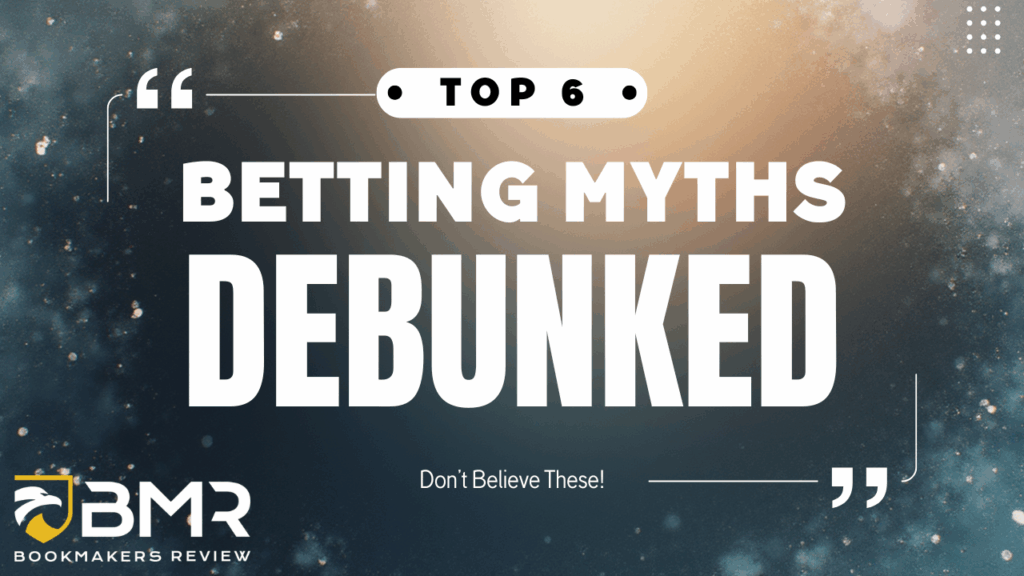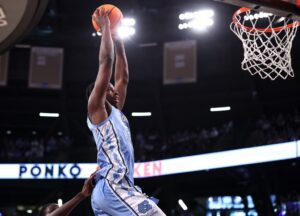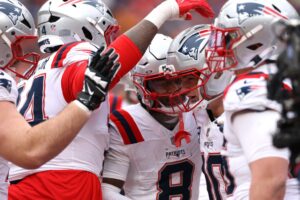In 2026, one thing hasn’t changed: Sportsbooks don’t just cash in on bad picks—they rake in profits from bad habits. Where do most of those habits come from? The same persistent myths, recycled year after year, passed around as if they’re insider secrets. You’ll find them everywhere: X (formerly Twitter), Reddit threads, Discord channels, and even from so-called “experts” breaking down the weekend action.
These myths have staying power because they sound insightful. They give you a sense of mastery—like you’re outsmarting everyone else. But here’s the catch: These clever-sounding shortcuts are exactly what the books want you to believe. They’re designed to keep you spinning your wheels and slowly draining your bankroll. Myths give you a false sense of control every time you place a wager.
That’s the real challenge in sports betting—it isn’t just tough losses or unlucky breaks. It’s falling into patterns of thinking that hand your edge right back to the house.
Whether it’s a trending system that everyone swears by or a “can’t-miss” tip that goes unchallenged, odds are you’ve bought into at least one of these myths along the way. It’s time to set the record straight and break free from the half-truths that can hold you back in 2026.
As the industry watchdog, we at Bookmakers Review want to put you in the best position to succeed in sports betting. With that in mind, here are six sports betting myths that might be making you feel sharp, but it’s slowly killing your edge.
Myth #1: Always Fade the Public - Making Contrarian Plays
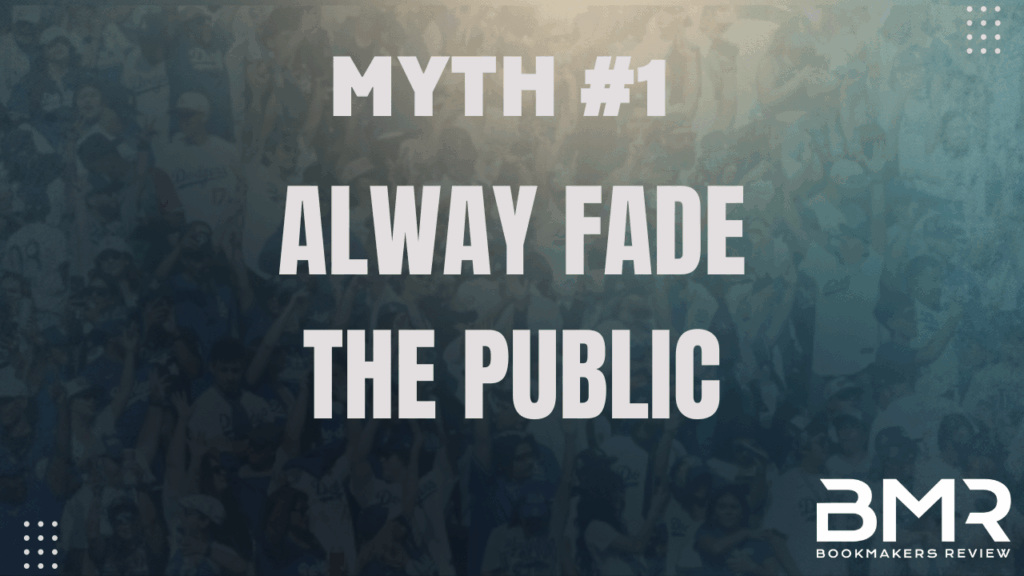
The idea sounds sharp: go against the crowd, think like a pro, and cash in while everyone else loses. But in reality, “fading the public” is one of the most misunderstood strategies in sports betting.
Sportsbooks already know where the public money is and adjust their lines accordingly. Blindly betting the opposite side doesn’t guarantee value. In fact, it often puts you on the wrong end of inflated odds. The truth is, sometimes the public is right. Just think back to the 2024 NFL season, where favorites dominated against the spread. There are times where Joe Public cashes in.
To that end, the smarter move isn’t to fade the public, but to understand why the public is on a certain side. If the hype doesn’t match the numbers, that’s when value opens up. But if you’re just betting against the crowd for the sake of it, you’re not outsmarting anyone, you’re just another predictable pattern the books have already priced in.
Myth #2: Follow the Sharp Money - Riding the Coattails of Seasoned Bettors
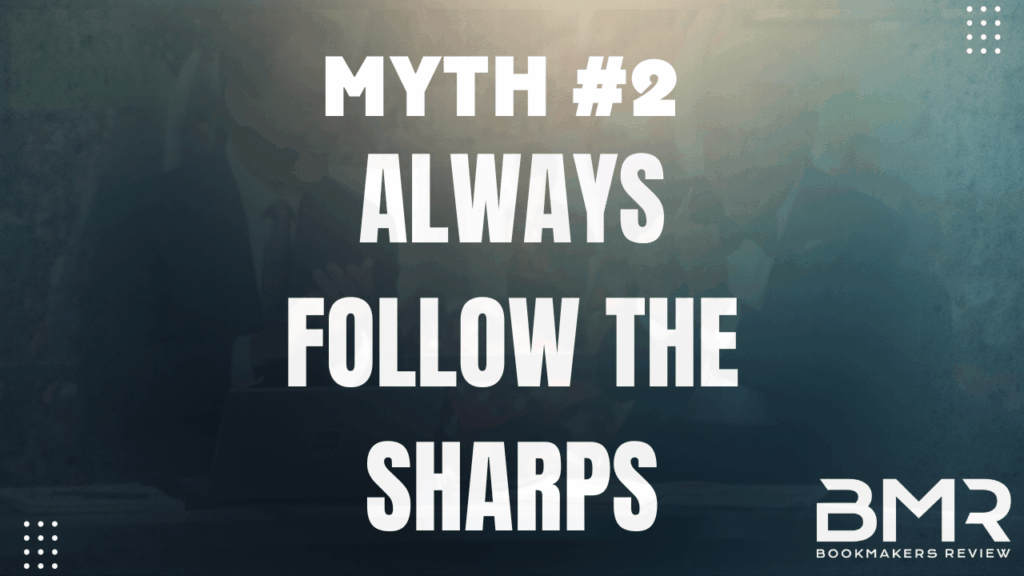
It’s one of the oldest pieces of betting advice out there: “follow the sharps.” The logic sounds simple: if professional bettors are moving the line, just ride their coattails to profit. But here’s the catch: by the time you spot that so-called “sharp money,” the value that made it sharp is usually long gone. For example, say with NFL betting, sharps are on the Kansas Chiefs -3.5, which has moved the spread to -4.5. Since “4” is still a key number in the NFL, you’ve lost quite a bit of value if you take Chiefs at the new number of -4.5.
Sharp bettors don’t just bet on teams, they bet on numbers. They strike early, exploiting soft openers before sportsbooks adjust. When the public finally sees a big line move and piles in, the edge that made the original bet profitable has already disappeared. In other words, you’re not getting the same deal they did: you’re taking the leftovers.
The truth is, sharp money can be a useful signal when you understand the context: why the line moved, how fast, and whether it matches your own analysis. But blindly tailing “smart” action without that context turns you into the very thing sharps profit from: a late, emotional bettor trying to catch up to information that’s already priced in.
Myth #3: Bet More During Hot Streaks - Upping the Ante While Riding High
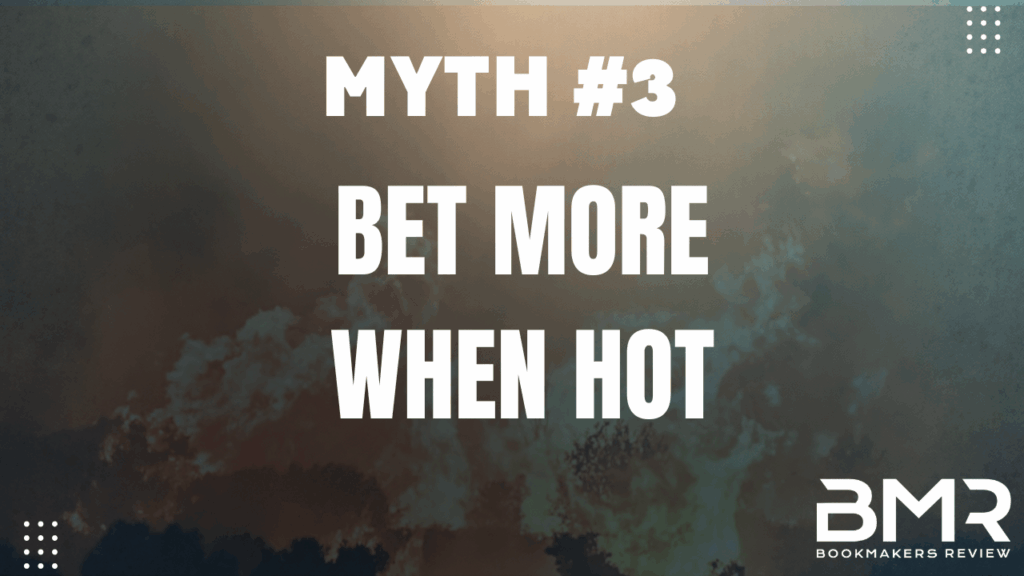
Winning a few bets in a row feels incredible. Your confidence is high, your instincts seem dialed in, and suddenly, every pick looks like easy money. That’s when most bettors make a critical mistake: they start increasing their wager size because they’re “seeing the board clearly.” But hot streaks are rarely a sign of newfound genius; they’re usually just variance going your way.
The problem with betting bigger after wins is that it blurs the line between confidence and recklessness. When you’re winning, emotions take over, and even small overbets can turn a positive run into a bankroll disaster when the inevitable cold streak hits. Professional bettors avoid this by picking their spots when to up the ante. This isn’t when you’re merely on a hot streak, but when a line looks completely mispriced.
While there are some exceptions where you should bet more than usual, such as a line that is mispriced compared to your projections, the best bettors in the world don’t chase the rush of a hot streak, they survive the swings. If you start treating every win as proof that you’ve “figured it out,” you’re not managing a bankroll anymore, you’re gambling with emotion, and that never ends well.
Myth #4: Line Movement Means Everything - Chasing Steam
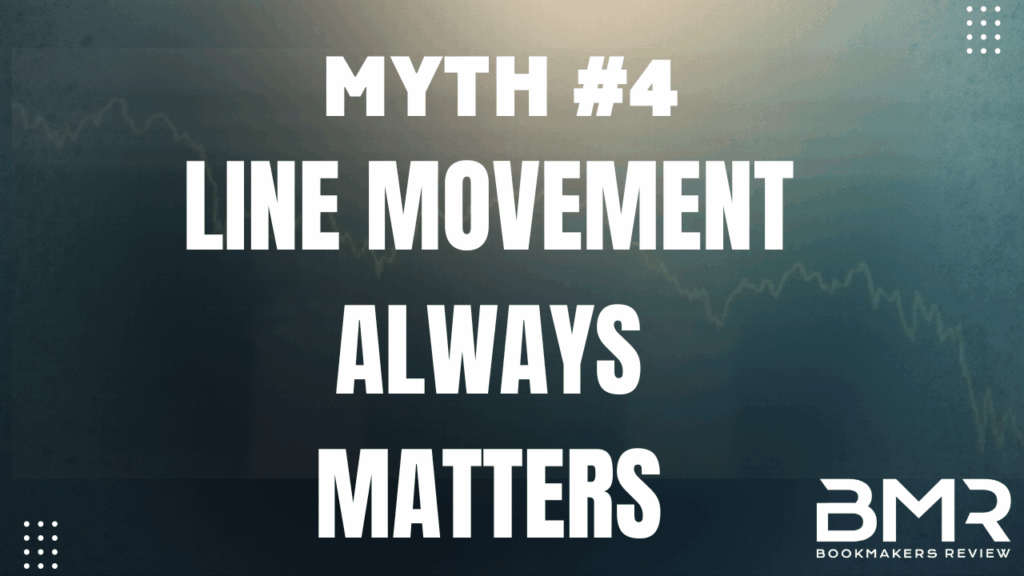
Every bettor loves to think they’re reading between the lines. When a spread shifts or odds tighten, it’s tempting to assume something big is happening behind the scenes. But while line movement can offer clues, it’s not the absolute truth that many bettors treat it as. Not every move reflects “inside information” or sharp money, sometimes it’s just the book balancing action or reacting to public trends.
Sportsbooks move lines for a mix of reasons: early sharp action, injury updates, weather, or simply to manage liability. A three-point swing in an NBA total one hour before tipoff might mean something different than a one-point move in an NFL spread an hour before kickoff. Without understanding why the number moved, chasing it blindly can leave you holding a bad line with no edge.
Other times, you may get favorable closing line value, but it doesn’t matter at all. For example, I took the Trail Blazers -2.5 against the Lakers early in the day. By game time, it was -10 because the Lakers were playing without Luka Doncic and Austin Reaves. It didn’t matter in the end, since the Lakers were able to win outright.
Smart bettors don’t worship line movement, they interpret it. They look for patterns that align with their own analysis, not just movement for movement’s sake. The market tells a story, but only if you know how to read it. Otherwise, you’re just reacting to noise and paying the price for someone else’s information advantage. You also don’t want to go overboard on getting ahead of line movement, since you can get burned there. Just look at me with the Blazers over Lakers.
Myth #5: Watered Down Player Props Are Safer - Targeting Juiced Alternate Lines
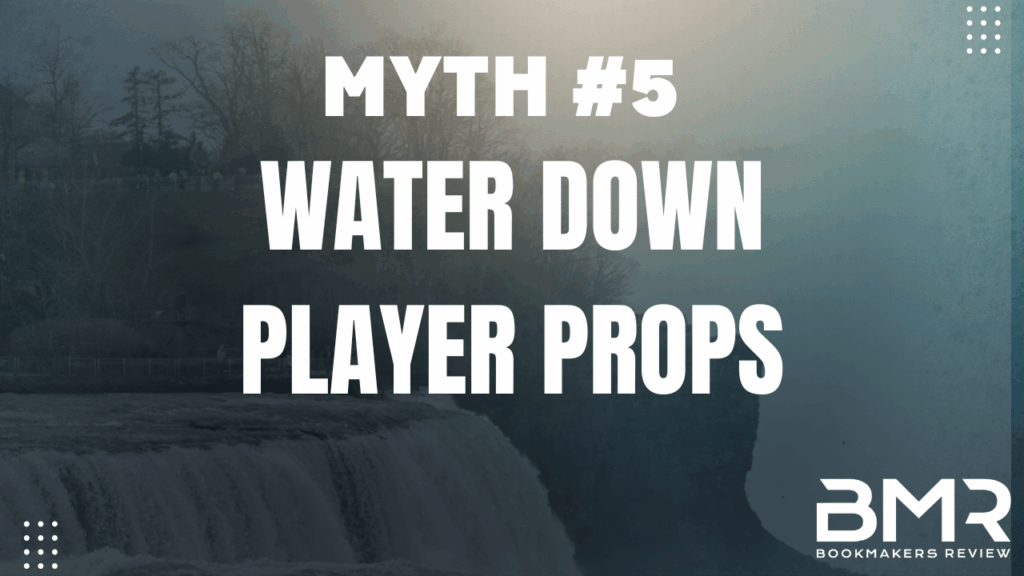
Alternate lines and low-threshold props look like an easy win, such as when a star player just needs 10 points instead of 20, or a QB only has to throw for 150 yards. It feels like you’re lowering risk and playing it smart. But what you’re really doing is paying a “comfort tax,” risking significantly more for minimal return. Sportsbooks know bettors crave safety, so they heavily juice these watered-down props to make sure that comfort comes at a cost.
The illusion of safety is what traps most bettors. Even when these alternate props hit more often, the long-term math still tilts in the book’s favor. Those -250 or -400 “locks” require unrealistic consistency just to break even, and one miss can wipe out the profits from several wins. It’s the slow bleed of bad value, a quiet bankroll killer dressed up as smart betting.
You also have to understand that some players have wide ranges of outcomes when it comes to their production. Take Detroit Lions wide receiver, Jameson Williams, for example. His receiving yard prop is often at 45.5 or higher. Theoretically, bumping him down to 25+ for a game feels safer. But that’s not the case. Williams has multiple games with fewer than 25 yards.
The truth is, safer doesn’t always mean smarter. Instead of chasing “easy” props, look for value in realistic, fairly priced lines where the odds reflect true probability. Betting scared might feel responsible, but over time, those watered-down bets are just another way the house gets paid.
Myth #6: The Revenge Game Matters - Targeting Players Facing Former Teams
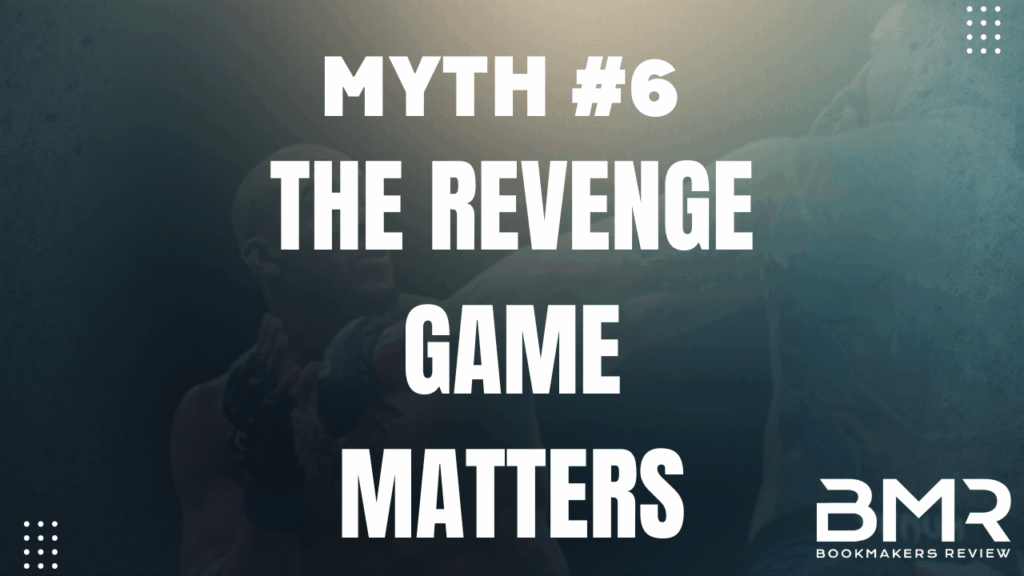
Every storyline-driven bettor loves the revenge angle: the star returning to face his old team, the coach squaring off against the franchise that fired him. It’s easy to buy into the emotion, but revenge rarely translates into reliable betting value. Sportsbooks know these narratives grab attention, and they quietly inflate lines knowing the public will overvalue the “revenge factor.”
Sure, some players rise to the occasion, but for every emotional breakout, there are dozens of “revenge games” that look just like any other night. Motivation alone doesn’t overcome matchups, fatigue, or scheme. In fact, bettors who chase these emotional narratives often end up paying a premium for a storyline that’s already priced into the number.
The reality? Most “revenge” spots are already baked into the market. Unless there’s a tangible edge, like a favorable matchup or overlooked data point, you’re just betting on vibes, not value. In sports betting, emotion is what fuels the public. Discipline is what pays the bills.
Final Thoughts
Sports betting isn’t about mastering one trick, it’s about balancing dozens of moving parts. Every game, line, and market comes with its own mix of variables: injuries, weather, motivation, travel, rest, public perception, and even subtle market shifts that happen behind the scenes. Focusing on any single narrative or “rule,” like fading the public or chasing line movement, oversimplifies a game that’s built on complexity.
The best bettors don’t rely on myths; they rely on process. They combine data with intuition, track results with discipline, and understand that every edge is small, temporary, and earned. No one variable guarantees success, but stacking small advantages, understanding context, and staying consistent over time is how real profitability happens.
Shopping around at the best offshore sportsbooks to find the best price on a point spread or a player prop is a great way to avoid getting caught up in the sports betting myths listed above.
At the end of the day, betting smart means thinking like a bookmaker: weighing risk, questioning assumptions, and never letting emotion dictate your action. The more factors you consider, the more control you have, and the less the myths can control you.

